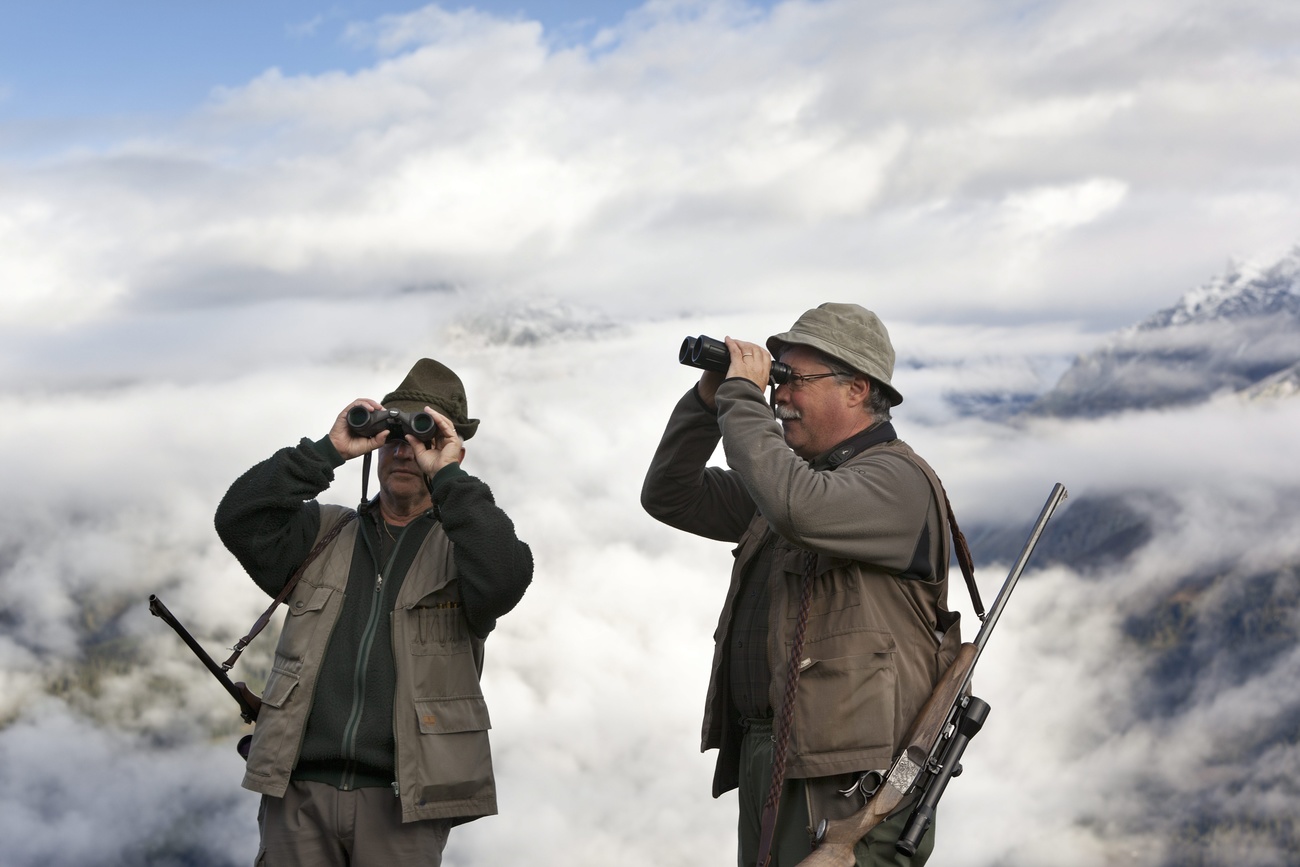No to a hunting law which allows ‘firing at will’
The reform of the hunting law is a step in the wrong direction as it encourages the culling of several wildlife species instead of boosting diversity, says Isabelle Chevalley. The parliamentarian for the centrist Liberal Green Party explains why she recommends voters reject the legal amendment in a nationwide vote on Septermber 27.
We receive two serious alarming scientific signals about the loss of our biodiversity. All the studies show that our species are rapidly disappearing. Switzerland has a Red List of species on the verge of extinction. We must do everything we can to preserve these species. But several of them are hunted. One can think, for example of the woodcock, which this amended law fails to protect despite it being on the Red List.
The question that we must ask is why continue to kill this bird? Does it damage agriculture? No. Does it damage human infrastructure? No. Do sales of this bird generate vital income for some sections of the population? No.
So why? For the pleasure of it. It would almost make us smile if it were not so absurd. We criticise Africans for killing elephants but in reality, we are no better.
Denial of democracy
Under the revised hunting law, it will be possible to kill a species even when it has not yet caused damage or harm. This is something very new because before, one had to demonstrate that there had been damage — and significant damage — to obtain authorisation to shoot. That will no longer be the case. On the other hand, the government can broaden the list of animals concerned without referring to the parliament. This is a major denial of democracy.
If you are wondering which animals may be impacted, the parliamentary debates give you some idea. Among others, they mention the lynx, the swan, and the beaver. In what way do these animals bother us?
The lynx certainly eats game which cannot be killed by hunters, but it is above all a powerful ally for foresters. By stopping the proliferation of deer that feed on new growth, it contributes greatly to the health of the forest.
The swan, which sometimes defecates in fields close to the lake, causes minimal problems for farmers. The beaver can create dams and modify local areas of the riverbed. In building its territory, its presence is generally accompanied by an increase in the biodiversity of the area.

More
Reform seeks to protect wildlife and Alpine farming
Once again, in the context of the loss of biodiversity, it is at the very least curious to accept killing these animals, which contribute to the overall balance, for a few minor infractions. And I remind you that they can be killed even before they have caused a single problem.
Finally, the decision to shoot will be placed in the hands of the cantons and no longer the government.
This poses a problem of the big picture. The animals do not respect the cantonal borders of our little country: an animal could be protected by night in one canton and killed the following day in the neighbouring canton. It will also be easier for interest groups to pressure cantonal authorities to grant the authorisation to kill. It is obvious that the Swiss government has a more comprehensive approach that considers the interests of all stakeholders.
We do not question the fact that we must, for example, regulate wolves when certain, very specific, criteria are met. But we cannot have a law which sends the signal: Fire at will!
We must learn to co-exist with wild fauna. Humans cannot eliminate everything that bothers them. Humans are part of biodiversity. To not respect that biodiversity will end in endangering the very survival of humans themselves.
This revision of the hunting law goes much too far, we must protect our biodiversity. No to a law from another era.
Translated from French by Sophie Douez
The views expressed in this article are solely those of the author, and do not necessarily reflect the views of swissinfo.ch.

More
Law paves way for ‘coexistence between wolves and humans’
Translated from French by Sophie Douez

In compliance with the JTI standards
More: SWI swissinfo.ch certified by the Journalism Trust Initiative








